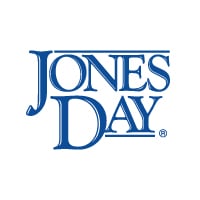

Country head of legal, Coca-Cola Pinya Beverages Myanmar; interim country head of legal, Coca-Cola Singapore, Malaysia and Brunei | Coca-Cola



Sheilah P. Elbinias
Country head of legal, Coca-Cola Pinya Beverages Myanmar; interim country head of legal, Coca-Cola Singapore, Malaysia and Brunei | Coca-Cola
What are the most significant cases, projects and/or transactions that you and/or your legal team have recently been involved in?
There is a significant contrast between the markets I work with. In Myanmar, recent calamities – including major flooding in 2024 and an earthquake in March 2025 – combined with ongoing political instability, have severely impacted the importation of key commodities such as sugar in 2023 and, currently, the concentrates necessary for producing Coca-Cola products. The unavailability of these concentrates has disrupted production, leading to a temporary shutdown in July and resulting in decreased sales.
The Legal Team’s role extends beyond traditional in-house responsibilities. We actively engage with the government and explore innovative solutions to secure the necessary concentrates.
For context, the military staged a coup d’état in February 2021, triggering widespread violence and protests. The ensuing junta introduced stringent legal amendments, including warrantless arrests, restrictions on freedom of expression and movement, and a particularly concerning mandate requiring residents to report unregistered visitors. These changes gravely affected individual rights. In response, the international community imposed targeted sanctions, which were widely supported by the public. These sanctions have severely limited the military government’s ability to trade freely, forcing it to prioritise foreign exchange reserves carefully. Its current strategy is to allocate export earnings to import essential goods, and unfortunately, Coca-Cola concentrates are classified as non-essential, placing them low on the import priority list.
Amid these challenges, the Legal Team’s responsibilities include sanctions checks and anti-bribery due diligence on officials with whom the company engages. We also participate directly in government meetings to help secure import licence approvals. Simultaneously, we are coordinating with our head office to gain approval for a third party to import the concentrates. This is a critical milestone, as Coca-Cola concentrates are a closely guarded trade secret. Their production, distribution, and handling are subject to stringent controls, allowing no deviation from established procedures.
The negotiations and contracts involve multiple key parties – The Coca-Cola Company, CCPBM, the third-party importer, production facilities, technical agents, customs agents, and freight forwarders – each with clearly defined roles designed to protect the secrecy and security of the concentrates. Among the many factors considered before finalising these arrangements, taxation has been a major issue. Over the past year, my team and I have been heavily involved in addressing this, and we are nearing a conclusion that we hope will provide a sustainable, long-term solution for the business.
In contrast, SIMA’s challenges largely lie within business operations, particularly distribution. Here, the Legal Team provides support by terminating agreements when necessary, ensuring compliance with ethical policies, and maintaining positive relationships with logistics partners, distributors, and wholesalers. Additionally, we assist the Commercial Team with initiatives such as contests, bundling promotions, and drafting distribution agreements – all carefully structured to comply with competition laws and regulations while fostering strong stakeholder relationships.
How do you approach managing legal aspects during periods of instability or crisis to ensure the organization’s resilience?
There is no fixed playbook when navigating crises. My approach has always been to remain available, responsive, flexible, and prepared for the worst. In 2021, when Myanmar plunged into political turmoil, we acted swiftly to update stakeholders on trade sanctions and their immediate impact on business operations, particularly in sensitive areas.
We partnered with Coca-Cola’s Ethics & Compliance Team to roll out training sessions for employees on new sanctions and how to navigate the regulatory complexities. We also introduced enhanced due diligence processes for vendors, suppliers, and job candidates – particularly those with familial links to government officials. Third-party investigators recommended by The Coca-Cola Company (TCCC) helped assess risk profiles, and I had the final say on approvals. If a reputational risk was identified, we blocked that entity from the system, ensuring compliance and safeguarding CCPBM’s reputation.
Managing distributor and partner relationships under sanctions was another challenge. Some partners were affiliated with sanctioned entities, but immediate termination without contract breaches could worsen tensions. I advised the Sales Team to take a diplomatic approach, likening it to a breakup: ‘It’s not you, it’s us. As a US-regulated entity under TCCC, we are legally obligated to end this partnership.’ This allowed us to uphold compliance without damaging relationships or provoking backlash.
On the ground, sales teams were often pressured by military or government officials for cooler servicing or deliveries. Though these sites weren’t directly affected by sanctions, we took a cautious stance. Working with the Finance Team, we decided to write off those costs to avoid further entanglement – prioritising staff safety and mitigating risk.
We also continued to assist CCPBM in securing operational licences and permits by engaging with civil servants. These efforts, though sometimes seen as peripheral, significantly contributed to business continuity and built our team’s resilience.
In the SIMA region – Singapore, Malaysia, and Brunei – our regulatory and advocacy responsibilities are shaped by distinct market dynamics and socio-political sensitivities. Each country requires a tailored approach to compliance and stakeholder engagement.
Challenges include evolving regulations on nutrition, sustainability mandates, and heightened consumer advocacy on environmental and corporate issues. Digital activism further complicates matters, as public sentiment can shift rapidly, affecting brand reputation and influencing regulatory priorities.
Our role extends beyond compliance. We act as strategic partners to commercial teams, providing proactive regulatory guidance and serving as sounding boards for innovative ideas. We help balance creativity and compliance, ensuring consumer engagement without regulatory compromise.
In Malaysia, the situation is particularly complex due to the lingering effects of a product boycott following the Gaza incident. This adds a layer of reputational management to our work, requiring careful stakeholder engagement, continuous sentiment monitoring, and agile risk strategies.
In summary, the SIMA region demands a nuanced, market-sensitive approach that blends regulatory compliance with strategic agility. Our strength lies in anticipating regulatory shifts, managing socio-political risks, and enabling innovation — ensuring business resilience in a rapidly evolving landscape.
Have you had any experiences during your career as a lawyer that stand out as particularly unique or interesting?
As a legal practitioner in the Philippines for 20 years before moving to Myanmar, I handled many cases, but one stands out. A politician-lawyer from a city outside Metro Manila filed an annulment case against his wife, a teacher. The wife hired me to oppose the petition, and she was determined to fight back.
During the trial, the husband presented a psychological evaluation claiming my client had narcissistic personality disorder. However, the psychiatrist had never even examined her. When I sought to cross-examine the psychiatrist, I was informed that she had migrated to Canada. My request for a deposition was denied, yet her findings were admitted as evidence.
Given the husband’s influence in the city, the trial judge privately urged me to advise my client not to oppose the annulment. He confided that he had also annulled his own marriage and implied that the same outcome would benefit my client. Recognising the bias and the ‘home court advantage,’ I asked a former classmate practising in the area to take over. Upon learning who the plaintiff was, she refused, leaving me no choice but to continue.
After the plaintiff rested his case, I filed a demurrer to evidence, which was denied. Just as it was our turn to present evidence, my client decided to withdraw from the case entirely and refused to participate further. This put me in a difficult position, having stood firm against the judge’s private urging and having fought so hard, all while knowing my reputation was at stake — especially since my father had just retired as Presiding Justice of the Court of Appeals and was highly respected in the legal community.
On the day we were set to present evidence, I declared in open court that we would no longer present any and moved for the judge to decide based solely on the plaintiff’s evidence. This infuriated the judge, who berated me publicly. I endured the humiliation, but as most lawyers develop thick skin early in their careers, I took it in stride.
Surprisingly, the case remained undecided for several years, even after the judge retired. When a new judge eventually took over, she dismissed the petition. By then, I had already withdrawn from the case. A city prosecutor, who was a friend of the plaintiff, later informed me of the result, and told me how upset the plaintiff was.
This case was particularly memorable. It exposed me to the realities of practising law in hostile or biased environments – being an outsider, facing a powerful local adversary, and dealing with a partial judge. Yet it was also a turning point in my development as a litigator. I had to think quickly, navigate complex courtroom dynamics, maintain professionalism, and protect my client’s interests despite the odds. It deepened my understanding of trial procedure and taught me the value of resilience, integrity, and discretion under pressure.
We are currently living through a time of geopolitical change, and the world order that we have come to take for granted for many years is being rewritten. Does this affect your company’s risk profile and, if so, what are you doing to mitigate this?
Given the challenging regulatory landscape – especially in markets where trade sanctions are imposed on numerous government officials and their affiliated companies – I have adopted a more stringent approach to trade sanctions screening. This includes close coordination with The Coca-Cola Company’s Ethics & Compliance team, which provides robust resources and expert support. Additionally, we have implemented enhanced anti-bribery due diligence on partners who represent or facilitate interactions with government agencies, ensuring that CCPBM remains fully compliant with all applicable laws and regulations as a U.S.-regulated entity.
On the business side, I launched several ethics and compliance initiatives aimed at fostering a culture of integrity. In 2023, we rolled out weekly one-minute training videos derived from our ethics training deck, delivered via email to all associates. In 2024, we introduced a comic series illustrating potential ethical pitfalls and real-life investigative scenarios – some based on actual cases. These efforts significantly contributed to a reduction in Code of Business Conduct (COBC) complaints and investigations, which dropped to single-digit figures.
I highlight these outcomes because, having recently taken on the role of Country Head of Legal for Singapore, Malaysia, and Brunei just two months ago, it is clear that continued vigilance is needed to protect the business and its reputation.
In Myanmar, during the height of the 2021 protests against the military junta, public name-and-shame campaigns targeted companies perceived to be cooperating with military-controlled entities. For example, businesses that cleared shipments through Customs were often viewed as supporting the regime. A list of companies allegedly linked to military officials circulated widely, and employees – including our own – called for a boycott of tax payments.
In both Malaysia and Singapore, where consumer activism is on the rise and the potential for increased U.S. tariffs poses additional risks, we have proactively partnered with various business units to safeguard our operations. These efforts include upholding strict compliance standards, strengthening internal processes, and developing contingency plans to address critical business risks. Such measures are essential to ensuring resilience and long-term business continuity amid evolving external pressures.
While the challenges vary across markets, the Legal function’s core mandate remains consistent: ensuring full compliance with local and international laws while preserving the company’s reputation and operational integrity.